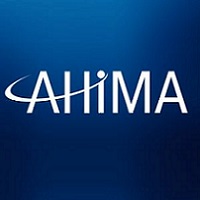 Journal of AHIMA outlines how payment methodology for strapped skilled nursing facilities requires an increased focus on clinical documentation improvement programs
Journal of AHIMA outlines how payment methodology for strapped skilled nursing facilities requires an increased focus on clinical documentation improvement programs
As skilled nursing facilities (SNFs) prepare for a payment model shift focused on reimbursement based on each patient’s unique medical complexity rather than volume of care given, many are turning to Clinical Documentation Improvement (CDI) programs for help.
In the article, Revolutionary Payment Changes Prompt Skilled Nursing Facilities to Eye CDI Programs, in the American Health Information Management Association’s (AHIMA) (@AHIMAResources) June issue of the Journal of AHIMA, Lisa A. Eramo writes about the opportunity for SNFs to turn to CDI programs in order to overhaul their documentation in advance of the upcoming payment methodology changes to the Patient-Driven Payment Model (PDPM).
Experts say the shift to PDPM is garnering attention from SNF administrators, many of whom want to ensure that the documentation recorded by the interdisciplinary team is consistent with the Minimum Data Set (MDS) assessment to support accurate coding. A primary concern is that payers will scrutinize diagnosis codes and potentially deny SNF services once PDPM goes into effect. Involving a CDI specialist and a certified coder is key to addressing the PDPM changes and ensuring documentation is accurate for reimbursement.
“The payment changes for SNFs puts greater emphasis on the specificity of ICD-10-CM diagnosis codes which are based entirely on clinical documentation. These changes not only help with reimbursement, the specificity in the codes provides better documentation of the patient’s story,” said AHIMA CEO Wylecia Wiggs Harris, PhD, CAE. “This is where health information management professionals, with their expertise in clinical documentation improvement and credentials, can be invaluable in an SNF setting.”
As CDI programs begin to make their push into SNFs, it is important to:
- Clarify specificity of all diagnoses, including the primary diagnosis (why the resident is receiving skilled services) and any comorbidities that exist on admission and/or develop throughout the duration of the resident’s stay.
- Develop query templates, query tracking tools, CDI tip sheets, physician education materials, and more.
- Ensure that nursing documentation supports medical necessity of 24/7 skilled nursing care as well as all information reported on the MDS assessment.
- Identify any major surgical procedures that occurred during the inpatient hospital stay that immediately preceded the SNF admission.
- Obtain copies of physician progress notes, which can be omitted from the transfer/admission process.
- Obtain copies of the complete hospital record, especially the hospital discharge summary, operative report (when relevant), and inter-facility transfer report. These records can also be omitted during the transfer/admission process, though in many cases a unit clerk would help assist the CDI specialist with obtaining both physician progress notes and the complete hospital record.
- Work with acute care hospitals to clarify the date of the preceding hospital admission.
About AHIMA
The American Health Information Management Association (AHIMA) represents more than 103,000 health information professionals in the United States and around the world. AHIMA is committed to promoting and advocating for best practices in health information and to actively contributing to the development and advancement of health information professionals worldwide. AHIMA’s mission is to empower people to impact health.
